May 17, 2024 | 11:39 GMT +7
May 17, 2024 | 11:39 GMT +7
Hotline: 0913.378.918
May 17, 2024 | 11:39 GMT +7
Hotline: 0913.378.918
As the strongest and most stable agriculture in Vietnam in terms of area, productivity and output, over decades, the Mekong Delta has proven, with absolute certainty, its contribution to food and foodstuff for about 2/3 of the country's population with more than 55% of rice production, exporting to the world 90-95% of rice, 65-70% of fruits and vegetables, and 75% of aquaculture production volume.
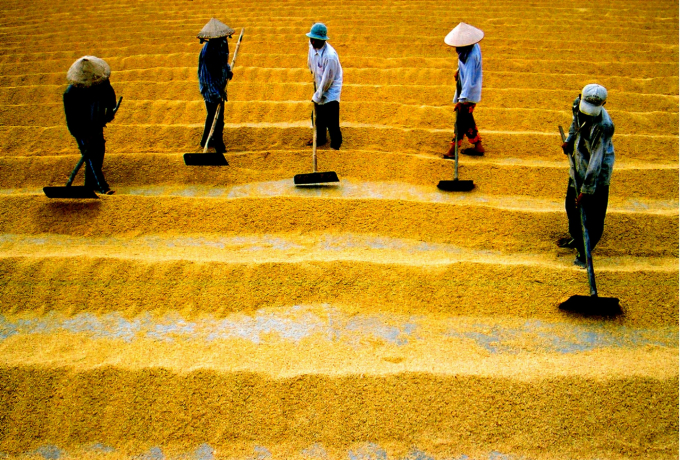
There is no other delta in the world that can match the Mekong Delta in terms of biological productivity. Photo: LHV.
However, based on many years' statistics, on an objective view, the strength of agricultural production is not enough to make farmers richer, they are even becoming poorer due to the climate being abnormal, limited water resources, the land reducing fertility, and signs of inadequacies from construction works that interfere too much with natural ecosystems.
As a result, farmers are gradually leaving their fields, gathering at cities and industrial zones, creating a wave of migration, leading to a shortage of young laborers in the countryside lacking in both knowledge and investment capital.
In a report of the Mekong Delta Plan (MDP) prepared by a group of experts from the Dutch Government in 2013, the concept of agri-business began to be introduced and proposed to the Mekong Delta region as a new orientation, but it has yet been made into a real policy of the Government of Vietnam.
It was until the end of 2017 that the Government reviewed the agricultural and rural issues in the Mekong Delta from expert reports, and so an important decision was made, which is ”Resolution 120/NQ-CP on sustainable development of the Mekong Delta to adapt to climate change” as a strategic policy to help the Mekong Delta reposition the development process, restructure and initiate transformation activities from pure agricultural production (only aiming to create more agricultural products) to agricultural economy with the goal of increasing the value of agricultural products through processing, supply and logistics chains.
Although Resolution 120/NQ-CP was issued at the end of 2017, it has been nearly 4 years since the transition to an agricultural economy has not seen significant changes because there are still many barriers and a need for necessary support and time.
As a matter of fact, farmers here and there in the delta have also switched to other agricultural production forms themselves in the direction of increasing agricultural products value chains through each stage to the market.
Farmers and their agricultural cooperatives benefit from the “One Community One Product” (OCOP) program. Agricultural commodities are processed into products and services that have developments based on the community’s comparative advantage, have added value and have a positive impact on the community. OCOP-labeled products can register an exclusive trademark, increasing competitiveness in the market. Market information, consumers’ reviews, plus weather factors, can be updated to help farmers make decisions for each of their crops.
As for larger companies, they can call on farmers to grow rice, fish, and shrimp, to gather land to work together while farmers still own the right to land use, and bring technological advances and mechanical equipment into production and product underwriting through processing, packaging, labeling, promotion and distribution in markets, supermarkets and for export. The farmer hence becomes a shareholder in production activities and participates in the process to increase value, worriless of the lack of capital and technology for the transformation.
This way of creating a chain of production - processing - supply is being applied by a number of large corporations which operate stably, for example, Vinamit, Vinamilk, My Lan... However, things do not always go smoothly for the transition to agricultural economy as there are many obstacles that prevent the wishes from being achieved. Several causes are visible in the practical situation.
Lack of coherence and profound trust: There are localities that implement linkage procedures in the product chain, but there are times when a breach of contract happens, especially when prices and services fluctuate, making previous commitments unfulfilled.
Lack of market information: Lack of information about market prices, commodity standards, consumer trends, domestic and foreign production of agricultural products as well as unclear information channels make production chains disoriented when farmers, accompanying services, and distributors only know how to produce but cannot do an economic analysis on processed agricultural products.
Lack of strategic planning for sustainable development, containing broader and longer-term regional orientations: The 2017 Law of Planning has paid much attention to integration, but so far, it is still waiting for the regional plans to be approved, then the sector development plans and the provincial plans.
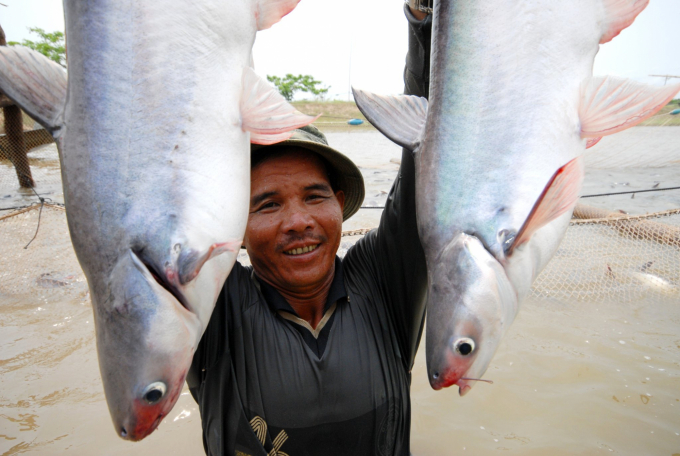
The farmers themselves in the community must improve in terms of capability. Photo: LHV.
These barriers are not really new, even countries with developed agriculture take many years to gradually improve. However, in our country, the improvement process seems to be going too slow compared to expectations.
In addition, unpredictable or uncertain factors such as the Covid-19 epidemic or natural disasters (drought, saltwater intrusion,…) or uncontrolled labor migration can make the planning impossible, or break the initial results and risk bringing farmers back to the old agricultural production or continue to exploit raw natural resources.
The solution to remove these obstacles is a multi-dimensional synthesis, which first has to come from the determination to improve policies and continuous direction of the Government and local authorities along with the contributions of scientists, the investment of businesses, banks, the support of civil organizations.
And finally, farmers in the community themselves must improve in terms of capability, promoting the participation process and even the support for disadvantaged groups in the countryside, heading towards a more sustainable agricultural production with a circular economy foundation that increases product value and income, going beyond smart agriculture.
Translated by Samuel Pham
/2024/05/16/4437-1-223910_491.jpg)
(VAN) The Community Food Garden model is one of the outstanding activities and models of green transformation in the world as well as in Vietnam.
/2024/05/16/2455-1-111202_165.jpg)
(VAN) Artemia eggs originating in Vinh Chau (Bac Lieu) are assessed by customers to have the best quality in the world; however, domestic production output only accounts for 1%.
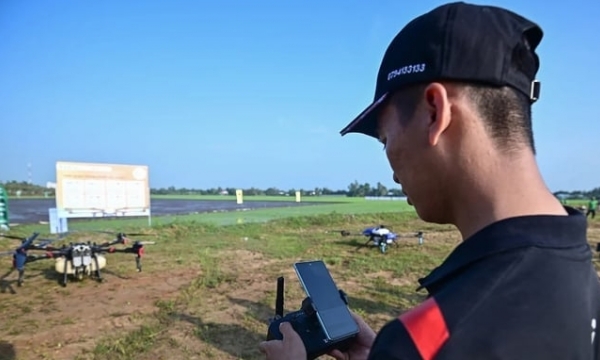
(VAN) Deputy Permanent Chairman of the National Committee for Digital Transformation Tran Luu Quang chaired the symposium on 'Promoting digital transformation of agriculture,' held on May 14.
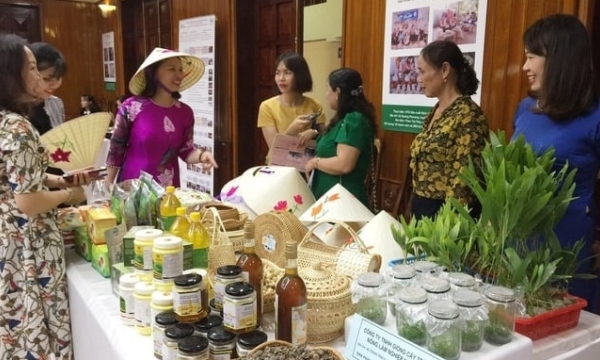
(VAN) After seven years of implementation, the Commercial Smallholder Support Project (CSSP) successfully aided numerous local households in escaping poverty, with multiple infrastructure projects initiated across Bac Kan province.
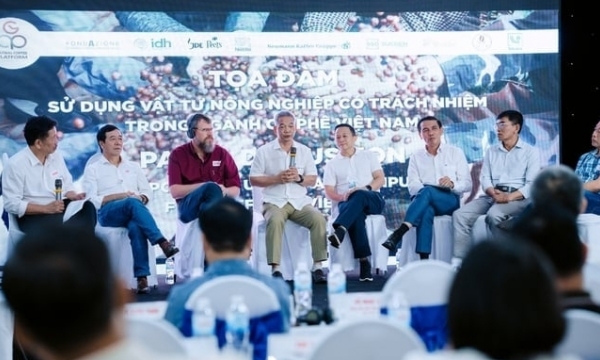
(VAN) The Global Coffee Platform (GCP) recently hosted a multi-stakeholder panel discussion on responsible use of agro-inputs in coffee production in Vietnam
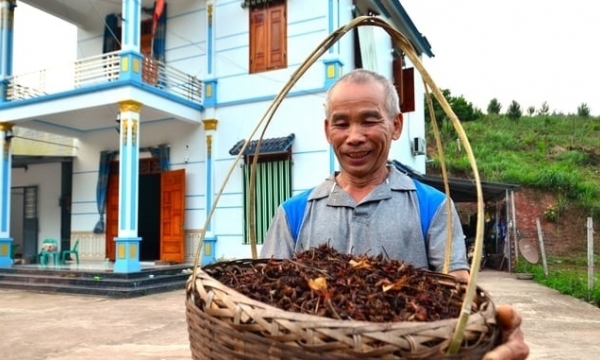
(VAN) Vietnam's Agriculture Newspaper engaged in a discussion regarding forest-based economic initiatives with Mr. Nguyen Huu Hung, General Director of Lang Son's Sub-Department of Forest Protection.
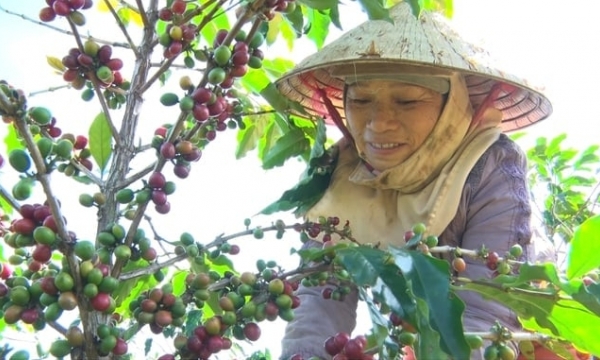
(VAN) The project is expected to increase the average income by 40% for approximately 2,000 coffee-growing households in the conversion of 2,500 ha.